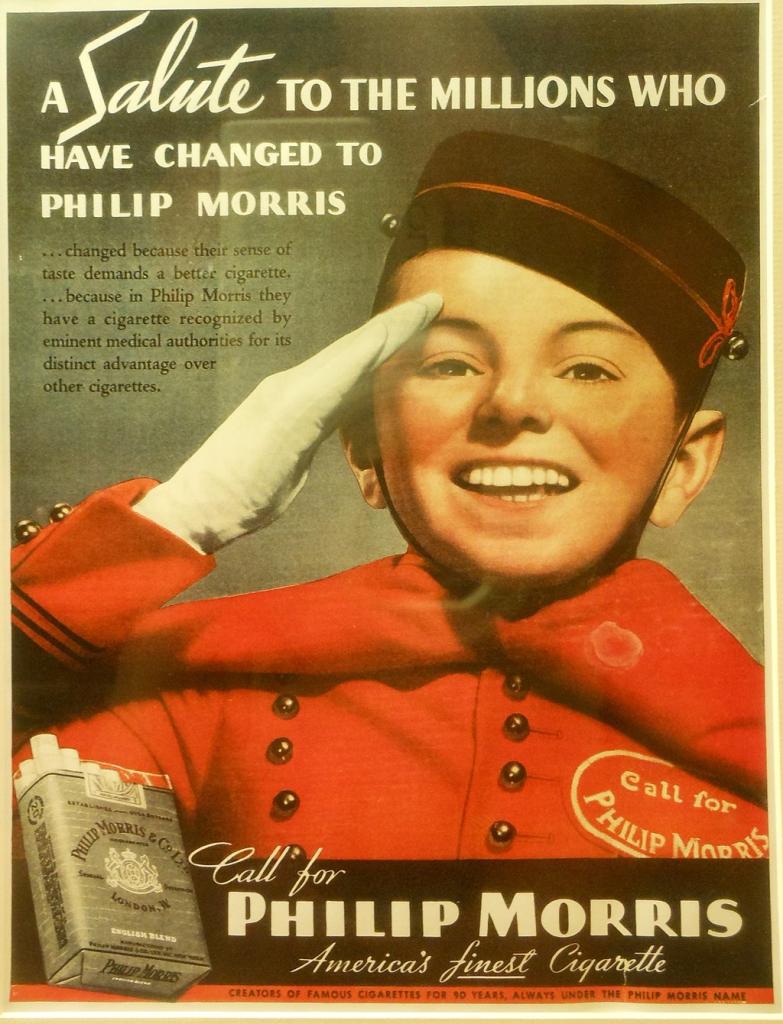
***
As we’ve often done when we’ve been here in the Richmond area, we’ve driven past a huge Philip Morris production facility at least twice each day. Right now, it’s brightly lit up with Christmas ornaments and Christmas trees; its six prominent towers are illuminated in alternating red and green light. Merry Christmas!
I’ve long wondered, though, about cigarette companies. What would it be like to work in an industry of which the product, if used correctly, makes people seriously ill and often kills them? Many years ago — it had to be pre-1998 — I read an interesting article (in the Wall Street Journal, I think) about university graduates in public relations who went to work for the Tobacco Institute. The Institute often managed to hire many of the very best, since it offered enormous starting salaries. But, as I recall, those new recruits commonly only lasted a year or two, because the money wasn’t enough: They couldn’t live with themselves. They simply couldn’t continue to claim and say things that they knew for a fact were not true, things that they knew were destroying health and killing people. (What a Christmas gift! Did you know that the German word Gift is equivalent to English poison?)
I’ve always been opposed to boxing, in both principle and practice ,for this simple reason: While injuries occur in football, and even in basketball and baseball and tennis and track and field, injuring a human body is the very point of boxing. Two superbly conditioned individuals step into a ring — at the peak of cardiovascular fitness, strength training, and agility — and then set about to damage one another. The object is to compromise the other fighter’s brain to the extent that he loses consciousness or, barring that, to hurt him so badly in some other way that he simply can’t continue.
I have grave moral reservations about such a thing, no matter how much I may actually have guiltily enjoyed watching portions of a fight from time to time when it’s been on a screen that I’ve passed by.
So, too, with the tobacco companies. Suppose you make or sell automobiles. They can, obviously, hurt and kill. But only when they’re used incorrectly, or something goes wrong. The same is true with sedatives. Abused, they can cause death. But they seldom do so when they’re used properly. Even a properly formulated and vetted vaccine, correctly deployed, can sometimes lead to serious illness or even to death. But cigarettes are different. They are inherently inimical to good health, and, in far, far too many cases, they’re lethal.
How could one live with oneself, working in such a business?
Do Colombian drug lords encourage their children to become addicted to cocaine? I very much doubt it. Do executives at R. J. Reynolds or Philip Morris market cigarettes to their kids? I would really, really like to know.
It’s possible that manufacturers and marketers and distributors of tobacco products didn’t really know, several generations ago, the harm done by cigarettes and cigars and the like. But that sort of ignorance is impossible today.
Behold, verily, thus saith the Lord unto you: In consequence of evils and designs which do and will exist in the hearts of conspiring men in the last days, I have warned you, and forewarn you, by giving unto you this word of wisdom by revelation . . .
Posted from Williamsburg, Virginia












